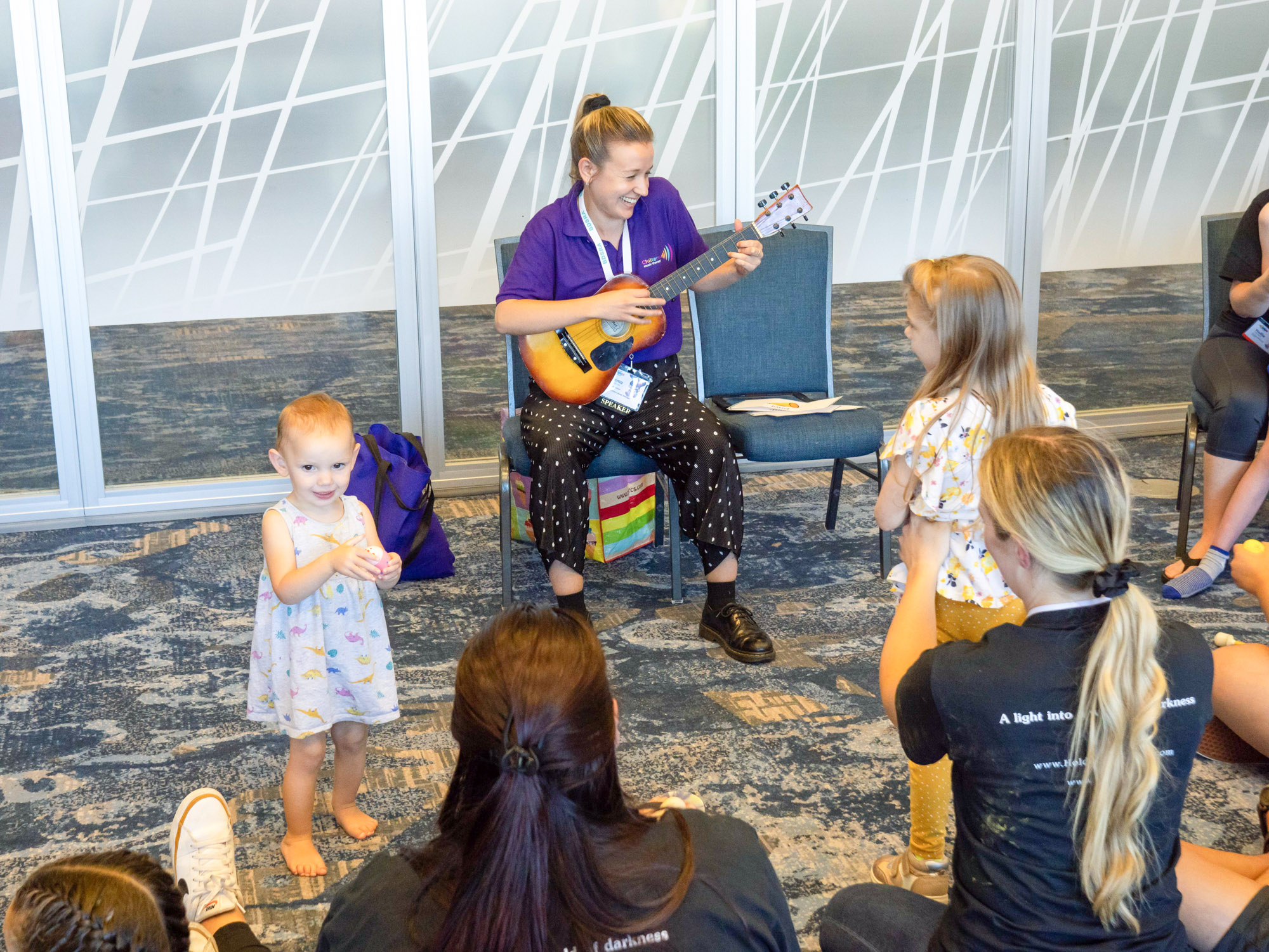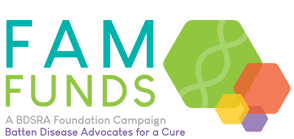There is no denying that technology has become a huge part of everyone, including children’s lives. There are thousands of games & education tools available to anyone with a smartphone or tablet. However, most of these apps can be difficult or impossible for visually impaired users to navigate. Below we have pulled together some resources for finding those that may work for our Batten kids who have vision impairments.
Wonderbay.org – Our Favorite Apps for Children Who Are Visually Impaired
This website lists 15 apps for children who are blind or visually impaired, they break them into a few categories including stimulating the use of vision, honing fine motor skills, communication apps, and storytelling apps.
A few highlights from this article:
Bebot ($1.99):
“Bebot is a simple sound cause and effect app that makes funny synth robot sounds. Touch the screen and make the robot sing!”
Cause & Effect Sensory Light Box ($2.99):
“This is a really well made cause-and-effect app that creates sounds and lights when your finger is on the screen, then stops when you remove your finger. Perfect for children with low vision or CVI.”
Pocket Pond (Free):
“Listen to birds chirp and frogs croak in a peaceful pond. Touch the screen to make the water splash or just watch the koi swim by”
Paths to Literacy – 138 Apps for Early Learning for students with Visual Impairments
This extensive list is curated by a Teacher Consultant for students with deafblindness. She includes apps for a wide range of vision impairments that fall into many different categories.
A few highlights from this article:
I Hear Ewe:
“When a user taps on an animal or vehicle icon, the game will verbally announce what type of animal or vehicle it is and play a recording of its real sound”
Sound Drop:
“Draw lines and watch as Soundrop uses them to create music.”
Animal Farm:
“Children learn about animals by seeing and hearing the sounds an animal makes.”
Courageous Parents Network is a non-profit organization that orients and empowers parents and others caring for children with serious illnesses, by providing resources and tools that reflect the experience and perspective of other families and clinicians.
This organization provides free virtual events as well as podcasts and printable guides.
 Bereaved Batten parents Warren and Brenda Pfohl know how challenging it can be to have a child with special needs. They understand what it is like for a parent to work tirelessly to make their child’s life as wonderful as possible and are well aware that often times parents and caregivers are so focused on their loved ones that they forget to take care of themselves. It was with this in mind that the Pfohl’s started David’s Refuge, an organization that “…was formed in honor of David to encourage parents to keep pressing on. As our guest, our prayer for you is that you will be restored and refreshed to fight the good fight, to finish the race and to keep the faith.”
Bereaved Batten parents Warren and Brenda Pfohl know how challenging it can be to have a child with special needs. They understand what it is like for a parent to work tirelessly to make their child’s life as wonderful as possible and are well aware that often times parents and caregivers are so focused on their loved ones that they forget to take care of themselves. It was with this in mind that the Pfohl’s started David’s Refuge, an organization that “…was formed in honor of David to encourage parents to keep pressing on. As our guest, our prayer for you is that you will be restored and refreshed to fight the good fight, to finish the race and to keep the faith.”
On their website, they explain “As parents of a child with special needs, we understand the feelings of isolation, exhaustion, and stress families experience in their role as caretakers. We’ve wrestled with questions of faith, felt the sting of broken dreams, and have questioned whether what we were doing really mattered.”
Their mission is to provide a place of respite free of charge for parents and guardians of children with special needs or life-threatening medical conditions where they will be refreshed, restored, and renewed in their role as caregivers. David’s Refuge allows parents and other caregivers much needed time to rest, reflect and recharge from the stress of full-time care-giving. They want others to know three things: that they are not alone, what they do matters, and there is a God who loves them.
To learn more about David’s Refuge and the Pfohl’s visit davidsrefuge.org.
Warren also writes a wonderful blog that touches on many aspects of having a child with specialneeds,https://caregiversrefuge.wordpress.com/
Eva’s Butterfly Wishes for Rare Children opened thanks to a donation from the Eva Juneja Foundation. Eva’s parents created the organization to give hope and respite to other families, like theirs, affected by Walker-Warburg Syndrome (WWS). Since its inception, the program has been expanded to support other children and families impacted by rare, life-limiting diagnoses beyond WWS.
The purpose of this program is to give rare diagnosed children their own butterfly wish, an experience designed especially for them that enhances their quality of life.
This article offers expert advice on recognizing symptoms of grief, accepting loss, and getting help. It begins with:
“ Grief after a deeply-felt loss can range from a sadness that lingers, always hovering in the background, to a total emotional upheaval that turns your entire world upside down. For the typical person, dealing with a loss can be one of the most difficult things to get through. But for a college student, it can be even more complicated.”
“College life is a period of drastic change, with a tremendous amount of growth and maturity at times tinged with confusion, fear, pressure and the thrill of newfound independence. Throw grief into the mix, and it’s easy to understand how difficult it can be to handle the huge spectrum of emotion that a college student might experience. This guide aims to provide a solid rock of support for grieving students and those who care about them.”
The article includes practical advice for not only those in college but anyone separated from their loved ones during a time of grief.
Some of the topics covered are:
- steps to take immediately after a loss
- tips on taking care of your mental health
- symptoms of grief and how to recognize them in yourself and others
- when and where to seek help, the importance of addressing and treating grief
- how to help a friend of loved one struggling with grief
- links to additional resources
In particular it highlights that grief is different for everyone and that it is important to be aware of how you are feeling and to get help if you need it. It’s a great piece for siblings, extended family, and friends to read if they are moving away from their support community.
This resource, mejo, is a tool that helps a caregiver organize medical/personal information to create a medical journal specifically tailored to their child. mejo makes it easy to identify and prioritize your child’s unique information!

Music has been recognized as a key support mechanism for individuals affected by Batten disease. Music therapy is a treatment which uses music to help with emotional expression, psychological health, and functional improvements. A typical music therapy session focuses on activities which involve playing instruments, singing, listening to music, or song writing to help patients to improve psychological wellbeing and emotional or physical difficulties.
Music therapy can particularly help with a child’s speech and communication. Parents and professionals supporting children with Batten disease often notice that a child’s speech is better when they are singing. Research has found that when a child receives music therapy, their language and communication can possibly be maintained over time.
Music therapy and other music interventions can help improve a child’s wellbeing and be used to reduce anxiety as well as increase relaxation. Research has also shown that music therapy can help with movement and exercising. Moving to music can help maintain a child’s mobility.
Musical activities for at home or in school are freely available online. Local music therapy services can be found through the American Music Therapy Association.
The National Organization for Rare Disorders (NORD) offers the Batten Disease Emergency Relief Program. This program assists eligible individuals with the cost of unexpected or emergency non-medical expenses that cannot be afforded without short-term assistance. Examples include the cost of repair for a car or major appliances, unexpected utility costs, or cell phone bills that cannot be afforded due to lost wages from time off related to illness or care of ill family.
Click here to learn more about NORD’s Batten Disease Emergency Relief Program!
Having a rare disease is difficult. Adding in the complex care required to treat or manage that disease and figuring out how to pay for it makes a rare diagnosis even harder. NORD’s Batten Disease Patient Assistance Program offers eligible individuals diagnosed with Batten Disease financial support to pay for out-of-pocket healthcare costs that are directly related to the care and treatment of Batten.
From the Child Neurology Foundation
BDSRA is excited to share with you the Child Neurology Foundation’s Respite Care Notebook. Over the last year, CNF has worked with patient advocacy organizations, including BDSRA, to build a comprehensive resource for families who are currently using respite care or are thinking about it for the future.
From the CNF website
Caring for our children requires lots of love and lots of patience. If your child lives with a special need, have you considered respite care? Families who have used respite care tell us that respite helps them “create a better balance” in their lives.
Respite care helps parents recharge, spend time with their partner, or with their other children. “Respite care expanded our circle of caring adults capable of providing high quality care for our son,” says one mother.
Respite can be a positive experience for your child. “Respite caregivers have helped my son participate in fun activities,” said one family. “…our son has a chance to meet new people and form other relationships outside his own family.”
The notebook is meant to be a place to put all of the information about your child that a respite care provider may need to know.
The sections include:
- Getting to Know Us, a place for you to describe all the members of your family and some of your child’s needs
- Medical Needs, this section is for listing medications, symptoms, what they should do in case of a seizure or other medical situation
- Getting to Know our Child, here you can talk more about your affect child/children including how they communicate, what equipment they use, and their daily routine
- Emergency Information, this is information you would want the care provider to take to the emergency room
- Pages for short and long visits which can be filled out before each visit to give your care provider a daily update
Even if you aren’t sure you will be using respite care we encourage you to look through the notebook many parts of the book would be useful to have on hand to help your extended family and friends better understand your child and Batten disease.
You can access the Respite Care Notebook by clicking here. The forms can be filled out online and then printed, or you can print and fill them out by hand.
Uplifting Experiences is a program of Uplifting Athletes that’s dedicated to providing a memorable opportunity for members of the local rare disease community and athletes to connect. Uplifting Experiences can take on many different forms, but the top priority is always harnessing the power of sport to inspire hope and joy in the lives of people impacted by rare diseases.


